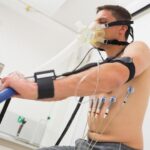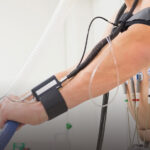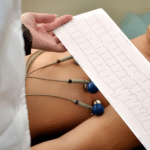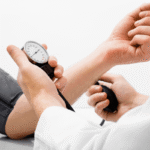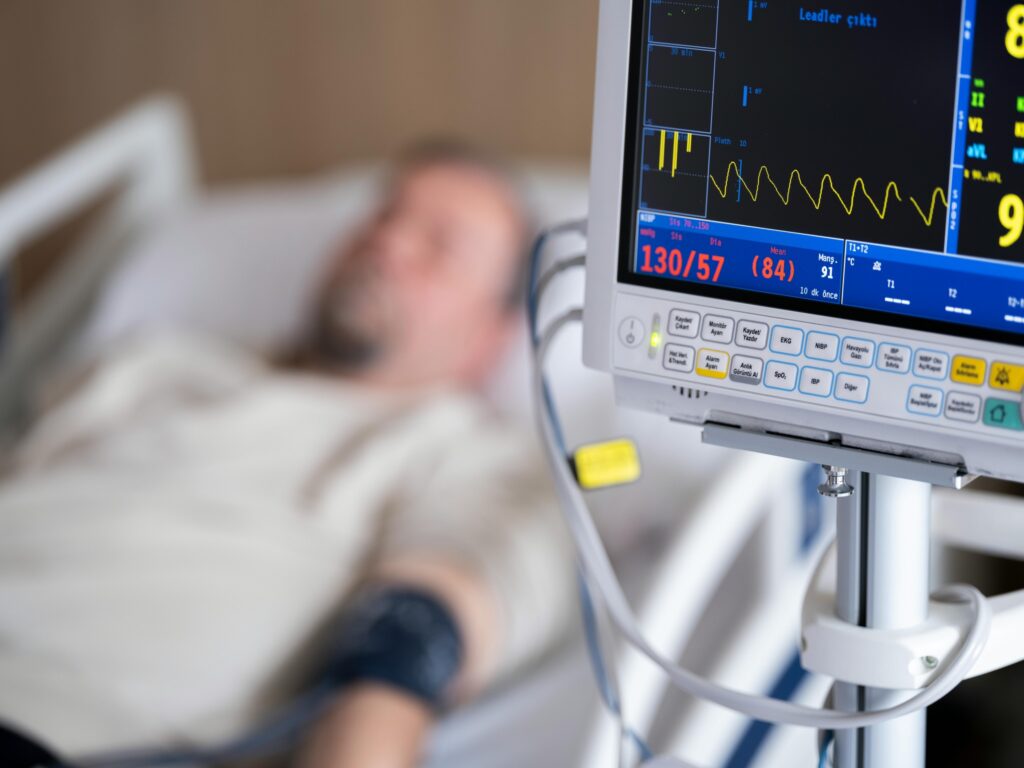How to Spot the Symptoms Before They Get Serious
Key takeaways:
- Atrial fibrillation (AF or AFib) is an irregular heart rhythm that can increase your risk of stroke
- Early symptoms can be subtle or mistaken for stress, fatigue, or aging
- Common signs include fluttering, breathlessness, poor sleep, and lightheadedness
- Not everyone feels palpitations, some people have no symptoms at all
- Early detection allows for better management and stroke prevention
A flutter in your chest. A skipped beat. Feeling short of breath walking up a gentle slope. These moments might seem too minor to worry about, but for some people, they could be early signs of atrial fibrillation (AF).
AF is a type of irregular heartbeat, and it’s more common than many people realise. It doesn’t just affect seniors or those with known heart problems, some people develop it in their 30s, 40s, or 50s. And because the symptoms can be subtle, AF is often missed until complications like a stroke occur.
Here are six early warning signs that shouldn’t be ignored:
1. Chest Fluttering or Skipped Beats
That odd fluttering or flip-flop feeling in your chest? That might be your heart beating out of rhythm. While many people assume it’s just stress or caffeine, recurring episodes, especially if they happen at rest, could be due to AF.
If your heart feels like it’s racing, thumping unevenly, or beating faster than usual without a clear reason, it’s worth checking.
2. Unexplained Fatigue
We all get tired. But AF-related fatigue feels different. It’s not the kind that goes away with a good night’s sleep. You might feel like you just can’t get through your usual day, even if you haven’t done anything strenuous. This can happen because your heart isn’t pumping blood as efficiently.
3. Shortness of Breath During Mild Activity
If walking to the bus stop or climbing a short flight of stairs leaves you winded, your heart may not be keeping up. AF can reduce your heart’s ability to circulate blood, making you feel breathless even during everyday tasks. This is especially important to note if you didn’t feel this way before.
4. Poor Sleep or Waking Up Suddenly
Some people with AF report waking up feeling breathless or uncomfortable. Others describe difficulty falling asleep or staying asleep without understanding why. If your sleep has changed and you can’t pinpoint a cause, your heart rhythm may be involved.
5. Feeling Light-headed or Dizzy
AF can sometimes cause a drop in blood pressure or reduced blood flow to the brain, leading to light-headedness or even fainting. It might feel like the room is spinning or that you’re about to lose your balance.
If this happens frequently, especially alongside other symptoms, it’s time to consult a doctor.
6. No Symptoms at All (But Something Still Feels Off)
Here’s the tricky part: not everyone with AF feels symptoms. Some people discover they have it during a routine ECG or health screening. That’s why regular checks matter, especially if you have risk factors like high blood pressure, diabetes, or a family history of heart conditions.
What Should You Do Next?
If any of these signs sound familiar, don’t panic, but don’t ignore them either. A doctor may recommend:
- An ECG – to check your heart rhythm
- Holter monitoring – to track irregularities over a day or more
- Echocardiography – to assess your heart’s function and structure
- Blood tests – to check for contributing conditions like thyroid issues
These tests are painless, and early detection of AF can reduce your risk of stroke and help guide treatment.
Frequently Asked Questions (FAQ)
About Atrial Fibrillation (AF)
Q1: Is atrial fibrillation the same as a heart attack?
A: No. Atrial fibrillation is an irregular heart rhythm caused by a disruption in the heart’s electrical signals. A heart attack occurs when blood flow to part of the heart is blocked. However, AF can increase the risk of complications like stroke, so early detection is important.
Q2: Can young adults get atrial fibrillation?
A: Yes. While AF is more common with age, it can also occur in younger individuals, especially those with certain risk factors like high blood pressure, thyroid problems, or a family history of heart conditions. Even those with no known conditions may develop AF.
Q3: If I feel palpitations, does that mean I have AF?
A: Not necessarily. Palpitations are a symptom, a sensation that your heart is racing or fluttering. They can occur with or without arrhythmias. An ECG or Holter monitor is needed to confirm if your heart rhythm is irregular.
Q4: How is atrial fibrillation diagnosed?
A: Diagnosis typically involves a 12-lead ECG, which records your heart’s electrical activity. If AF isn’t caught during the visit, your doctor may recommend ambulatory ECG monitoring (e.g., a Holter device) to track your heart rhythm over 24–48 hours or longer.
Q5: Is atrial fibrillation curable?
A: While AF is often a long-term condition, it can be well-managed with medication, lifestyle changes, or certain procedures. The goal is to control the heart rate or rhythm and reduce the risk of stroke or other complications. Treatment is tailored to each individual.
Trust Your Gut, And Get Checked
That odd flutter, the unexplained fatigue, the breathlessness, you don’t need to “wait and see.” At Heart Matters Cardiac Centre, we offer thorough assessments for atrial fibrillation and other heart rhythm issues. Whether you’re having symptoms or simply want peace of mind, our team is here to help.
📍 Mount Elizabeth Novena Specialist Centre
📞 +65 6339 1991
📧 info@heartmatters.com.sg
🔗 Book a consultation




